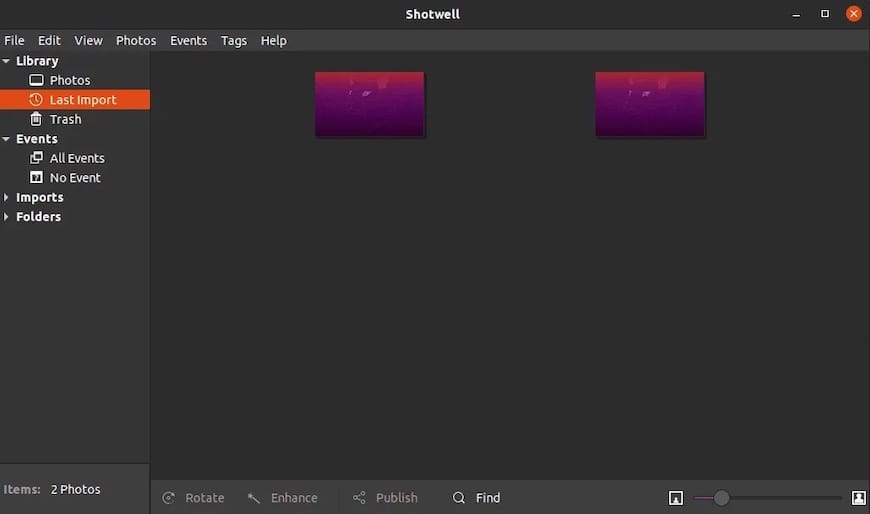How To Install Shotwell on Debian 12

Shotwell is a powerful and versatile photo management application designed for the GNOME desktop environment. It allows users to import, organize, edit, and share their photos seamlessly. For those using Debian 12, installing Shotwell can enhance your photo management experience significantly. This guide will walk you through the installation process step-by-step, ensuring you can enjoy all the features Shotwell has to offer.
Understanding Shotwell
What is Shotwell?
Shotwell is an open-source photo organizer that provides a user-friendly interface for managing digital images. It supports various formats, including JPEG, PNG, and RAW files. Key features include:
- Importing photos from your camera or storage device.
- Organizing images into events and albums.
- Basic editing tools such as cropping, rotating, and color adjustments.
- Sharing photos directly to social media platforms.
Why Use Shotwell?
Shotwell stands out due to its simplicity and efficiency. Unlike other photo management tools that may overwhelm users with excessive features, Shotwell focuses on essential functionalities that cater to everyday needs. Its active community ensures regular updates and support, making it a reliable choice for both casual users and photography enthusiasts.
Preparing Your System for Installation
System Requirements
Before installing Shotwell on Debian 12, ensure your system meets the following requirements:
- A compatible version of Debian (Debian 12 or later).
- A minimum of 1 GB RAM (2 GB recommended).
- At least 500 MB of free disk space for installation.
Updating Your System
Keeping your system updated is crucial for smooth software installation. Open your terminal and execute the following commands:
sudo apt update && sudo apt upgradeThis command checks for available updates and installs them. It ensures that all packages are current, reducing the likelihood of compatibility issues during the installation of Shotwell.
Installing Shotwell on Debian 12
Method 1: Installing via APT
The simplest way to install Shotwell on Debian 12 is through the Advanced Package Tool (APT). Follow these steps:
- Open Terminal: You can find the terminal in your applications menu or by pressing
Ctrl + Alt + T. - Run the Installation Command:
sudo apt install shotwell- Enter Your Password: When prompted, enter your user password to authorize the installation.
- Confirm Installation: APT will display a list of packages that will be installed along with Shotwell. Type
Yand pressEnterto proceed. - Wait for Installation to Complete: The installation process may take a few minutes depending on your internet speed and system performance.
This method automatically resolves dependencies required by Shotwell, making it an efficient choice for most users.
Method 2: Installing via Flatpak
If you prefer using Flatpak, which offers a sandboxed environment for applications, follow these steps:
Step 1: Install Flatpak
If Flatpak is not already installed on your system, you can install it using APT:
sudo apt install flatpakStep 2: Add Flathub Repository
The Flathub repository hosts many applications including Shotwell. Add it by running:
flatpak remote-add --if-not-exists flathub https://flathub.org/repo/flathub.flatpakrepoStep 3: Install Shotwell Using Flatpak
You can now install Shotwell from Flathub by executing the following command:
flatpak install flathub org.gnome.ShotwellYou will be prompted to confirm the installation; type Y, then press Enter.
Launching Shotwell
How to Launch Shotwell After Installation
You can launch Shotwell in several ways:
-
- Via Terminal:
shotwell-
- Via Applications Menu:
Navigating through your applications menu should reveal an entry for Shotwell under “Graphics” or “Photo Management.”

Troubleshooting Common Installation Issues
Common Errors During Installation
If you encounter issues during installation, here are some common problems and their solutions:
-
- Error: Missing Dependencies:
If you see messages about missing dependencies, try running:
sudo apt --fix-broken install-
- Error: Package Not Found:
This may occur if your package lists are outdated. Ensure you have run the update command mentioned earlier.
-
- Error: Permission Denied:
This usually indicates that you need superuser privileges. Ensure you use sudо.
Using Aptitude for Dependency Resolution
If APT fails to resolve dependencies automatically, consider using Aptitude, which provides a more interactive approach:
sudo aptitude install shotwellAptitude will suggest solutions for any dependency issues it encounters. Follow its prompts to resolve conflicts or missing packages.
Uninstalling Shotwell
Removing Shotwell Installed via APT
If you decide to uninstall Shotwell later, use the following command in the terminal:
sudo apt remove shotwellThis command removes Shotwell but retains configuration files in case you wish to reinstall it later.
Removing Shotwell Installed via Flatpak
If you installed Shotwell using Flatpak and wish to remove it, execute this command:
flatpak uninstall --delete-data org.gnome.ShotwellThis command will remove all data associated with Shotwell along with the application itself.
Congratulations! You have successfully installed Shotwell. Thanks for using this tutorial for installing the Shotwell photo management application on the Debian 12 system. For additional help or useful information, we recommend you check the official Shotwell website.